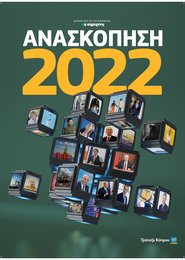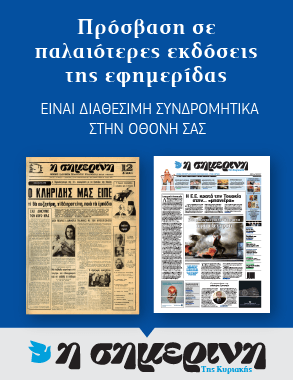Michael Rubin interview: Cyprus solution, expulsion of Turkish settlers & reparations for crimes
The recent analysis by Michael Rubin in the “National Interest” has made an impact, especially in regards to the measures proposed against Turkey and the illegal Turkish-Cypriot regime for the occupation and ethnic-cleansing of Cyprus. “SigmaLive” and “Simerini” conducted an exclusive interview by Mr. Rubin. In his statements, the American scholar and former Pentagon official decried the failure of the UN in Cyprus and the collapse of the Bizonal Bicommunal Federation solution model. In a characteristic statement, he said had this negotiation framework been applied in the times of Genghis Khan, the Mongols would still rule Europe. He also spoke of the relations between Turkey and NATO, Cyprus and the US and the future of Turkey in a post-Erdogan era. He also referred to the issue of demographic change on the island through settlers and weaponized migratory flows.

In a recent analysis in the “National Interest” (10/03/2021) titled “Why Is Cyprus Still Divided?” (which was translated in Greek by “SigmaLive”), Michael Rubin, American author, resident scholar at the American Enterprise Institute and former Pentagon official, strongly criticized the UN for its stance on Cyprus drawing a parallel with the case of Iraq. He called on the US, the EU and the countries of the Arab world to proceed in taking a series of diplomatic, political and economic measures against Turkey and the illegal regime in order to end the ongoing occupation of Cyprus. Among other things, he stressed in his article that “an Iraq comparison does not mean military action, of course, although Cyprus and its allies do have the right to one day expel Turkish outposts on the island by force if other coercive measures fail”.
Today, “SigmaLive” and “Simerini” publish an exclusive interview by Mr Rubin where he is asked to further expand on his views. Marios Poullados and Lambros Kaoullas asked 7 questions related to the settlement process in view of the upcoming informal five-party summit for the Cyprus Question, the US-Cyprus relations in the Eastern Mediterranean with Turkey in the backdrop and the treatment of forms of hybrid warfare, including weaponized disinformation and illegal immigration.
In his statements, Michael Rubin decried the failure of the UN in Cyprus and the collapse of the Bizonal Bicommunal Federation solution model. In a characteristic statement, he said had this negotiation framework been applied in the times of Genghis Khan, the Mongols would still rule Europe. He also spoke of the relations between Turkey and NATO, Cyprus and the US and the future of Turkey in a post-Erdogan era. He also referred to the issue of demographic change on the island through settlers and weaponized migratory flows.
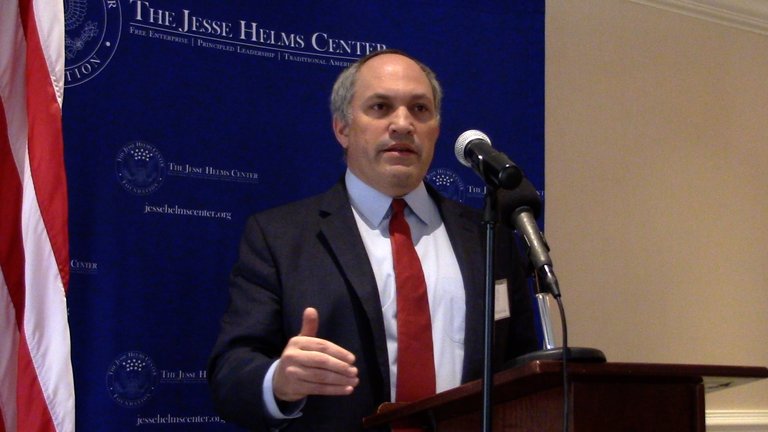
Federation, failure of UNFICYP and... the Mongols
(1) In your recent article, you referred to the failure of the UN to broker lasting peace on the island. The UN-sponsored peace negotiations have been taking place within the framework of the Bi-zonal Bi-communal Federation (which was a Turkish demand in the first place to consolidate the gains from the occupation). Despite numerous concessions by the Greek Cypriots these decades, negotiations continuously collapse because of Turkish intransigence that now openly demands partition in violation of all UN Resolutions. Do you have believe alternative frameworks for the Cyprus Question should be developed?
There are three reasons why alternative frameworks should be developed. First, the bi-communal, bi-zonal model has not worked. If there has been so little movement after 47 years, it is fair to ask both if the current model works and if UN officials say it does, then what is their timeline? 800 years to solve the crisis? Because that’s the pace we are at. If the UN existed when Genghis Khan rampaged into Europe and then the Secretary-General decided to employ the same toothless negotiations-style now at play in Cyprus, Europe would still be ruled by the Mongols.
But put such criticisms of UN strategy aside. The second reason it is time for an alternative framework is that Turkey has shredded the existing model by demanding a two-state solution. Well, if Turkey opens the doors to revision, then let Ankara know revisions can go both ways. Let Erdoğan’s attempt to impose his own formula be his undoing. At this point, he is all bluster and a concerted European willingness to stand up to him will expose his fundamental weakness.
Third, and most important, it is important to signal that Turkey cannot acquire territory through force and that Turkey’s ethnic cleansing will not stand. That the United Nations did not do this really is its original sin in the Cyprus conflict. The reason why it is now so important to show Turkey is will not succeed in Cyprus is because Turkey now employs the same land-grab model it perfected in Cyprus to seize territory in Syria and it appears it may also do so in Armenia and Iraq.
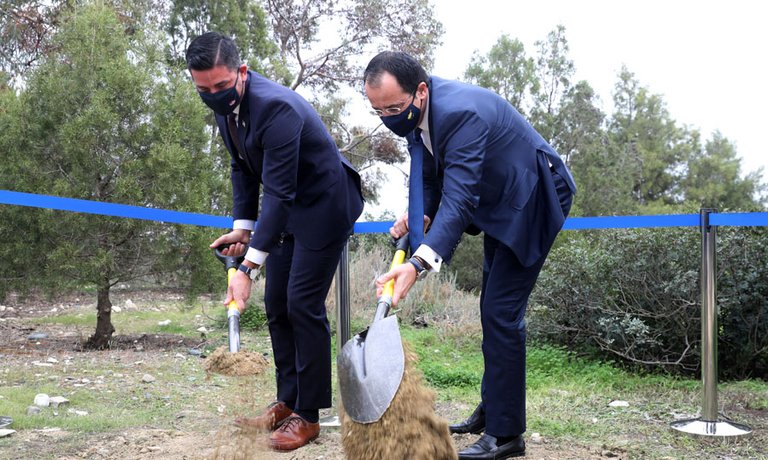
American "Cyclops" & hybrid warfare
(2) Early in January 2021, the Acting Secretary of the US Department of Homeland Security Chad Wolf and the US Ambassador Judith Garber joined the Cypriot Minister of Affairs Nicos Christodoulides in groundbreaking ceremony for the establishment of the Cyprus Center for Land, Open Seas & Port Security Training Facility (MoU singed in September 2020 with Secretary Mike Pompeo). CYCLOPS will develop into a hub of activity at a domestic, regional and international level and will deal with issues of countering radicalization and hybrid threats. How do you judge this development and do you believe that Turkey is conducting hybrid warfare against Greece and Cyprus using weaponized information and illegal immigration?
Certainly, CYCLOPS is a positive development, but too much of what the Trump administration did was heavier on symbolism than on substance. This was evident with the lifting of the arms embargo but only for “non-lethal” goods. In effect, we suggested we were enabling Cyprus to arm itself when, in reality, we were only giving it a couple sweaters and perhaps some rations for use during exercises. I will give the Biden administration benefit of the doubt, but hope that they will do the right thing and not just posture.
As for hybrid warfare, it’s already underway. For decades, Turkish leaders have played demographic games in Cyprus by sending settlers to the island from Turkey. Erdoğan has accelerated the problem. He has also weaponized illegal immigration both as a threat and for propaganda: Force migrants into rickety boats and then invite pre-staged media to film the Greek Coast Guard protecting its own territory and the Schengen borders as it is treaty-bound to do.
Most recently, Turkey has used its seismic exploration vessels to both probe Greek defenses and to wear Greece and Cyprus down.
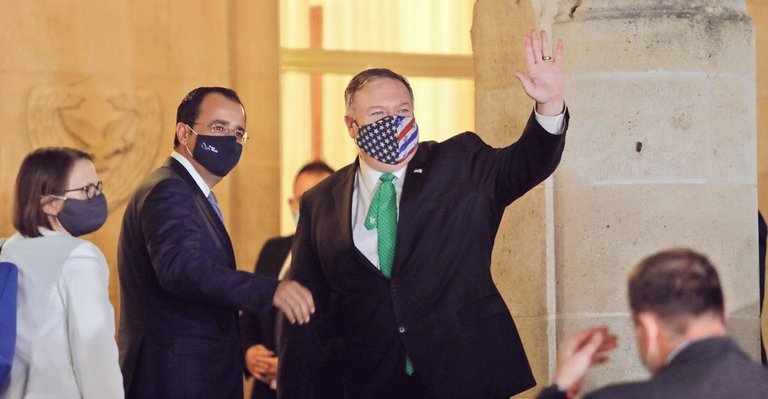
Turkey in NATO and the State Department - Pentagon approaches
(3) Can Turkey still be considered a reliable ally of NATO, especially after the acquisition of the S-400 missiles? We also remind that in 2003 Turkey denied passage to allied troops for the Iraq operations.
A lot of people not only in Turkey but also in Greece and Cyprus opposed the U.S.-led invasion of Iraq in 2003. Iraq was not a NATO mission, and so Turkey’s reluctance to participate shouldn’t reflect on NATO. I worked at the Pentagon at the time on the Iraq file and what did surprise Washington is that the backchannel broke down. Certain Turkish officials assured their American counterparts that their parliamentary vote was a done deal but then the same officials personally undercut the vote. Put aside the debate about whether or not the Iraq war was a good idea; I recognize most people view it as a mistake. From an American perspective, the fact that Turkish leaders lied behind-the-scenes really broke trust.
As for the S-400 missile and Turkey’s broader flirtation with Russia, that is a clear betrayal of NATO. Some diplomats excuse Turkey as just trying to get the best deal for itself but the basis of NATO is mutual defense, not a mechanism for countries to benefit themselves individually at the expense of the many. For this and many other reasons, Turkey should be considered a liability to NATO.
(4) Should the US have a "Plan B" for Turkey in case it detaches itself from the West's sphere of influence?
The danger is not that Turkey detaches itself. That would be the best-case scenario. The real danger is that Turkey remains in NATO. Because NATO is governed by consensus and has no formal mechanism to expel a wayward member, Turkey can paralyze NATO by remaining. That said, we no longer need Incirlik and should abandon it immediately. Our forces there are not assets; they are hostages. NATO traditionally relies on Turkish manpower, but the expansion of NATO provides opportunities to fill the gap left by Turkey’s departure.
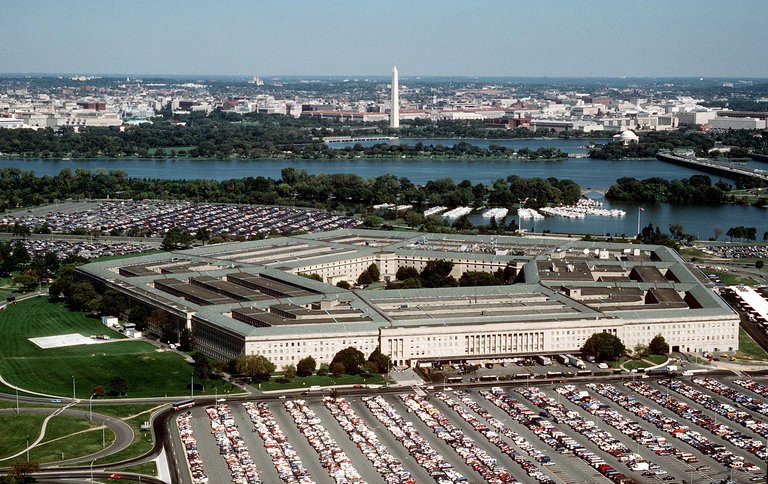
(5) We understand that that the State Department is not the only institution that enacts US foreign policy, but also the US Pentagon. Do you believe that the opinions of the two institutions on Turkish affairs are identical?
Frankly, two decades ago, Turkey could count on the White House, Congress, the Pentagon, and the State Department. Because of Erdoğan’s antics and a rising class of diplomats unaccustomed to working in a democracy, Turkey’s influence has plummeted: Turkey today has lost the White House, the Pentagon, and much of Congress. The Congressional Caucus on Armenian Issues, for example, is now larger than the corollary Turkey Caucus and the Armenian Caucus includes most prominent Congressmen of both parties, while less prominent representatives make up the bulk of the Turkey Caucus. The State Department has been the slowest to come around but even they are starting to wake up to the reality of Turkey, especially with the retirement of Jim Jeffrey. That said, there still is naïve trust in Turkey within the State Department. That can be seen clearly by Secretary of State Blinken’s decision to allow Turkey to mediate between the Taliban and the Afghan government. Frankly, after U.S. and European intelligence recognized the depth of Turkey’s support and interaction with the Islamic State, Ankara never should have again been trusted.
(6) Is the Biden administration concerned about the Berlin-Moscow-Ankara triangle both in regards to energy (Nord Stream 2, Akkuyu nuclear power plant) and their relations with China and its Belt & Road Initiative?
The Biden administration is lagging behind simply because it has focused so much on COVID-19 and unraveling some of Trump’s legacy, but I suspect it is slowly waking up to these issues. If they prefer to remain asleep, then I am confident Congress will force Biden’s hand to address the Turkish component of some of these issues.
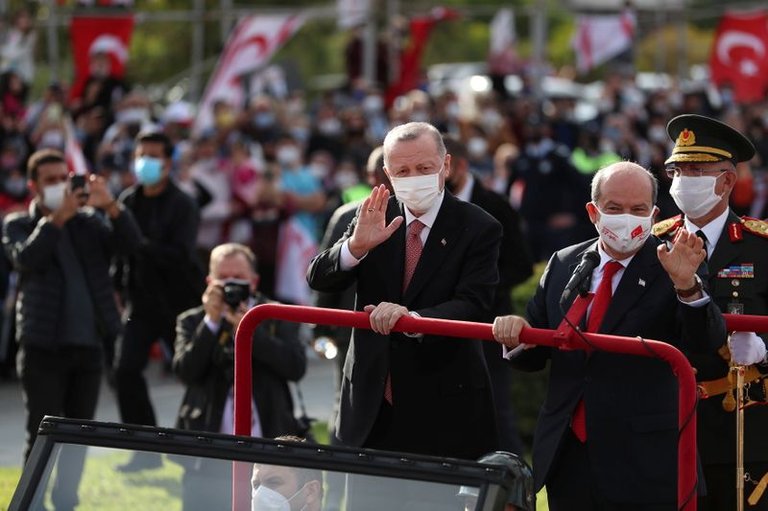
Removal of settlers from Cyprus and a post-Erdoğan Turkey
(7) Recent polls seem to suggest that Erdoğan is losing ground in popularity. Do you believe that a post-Erdoğan Turkey will alter its stance on several issues, including the Cyprus Question? In other words, do you think that this revisionism and the extreme rhetoric is a byproduct of the Erdogan administration or do you believe is a reflection of deeply-rooted beliefs of the Turkish people?
More than 30 million Turks have gone through Turkish schools and universities under Erdoğan. Because so few Turks are bilingual, they are also hostages to the incitement of the media bubble Erdoğan created. This means that diplomats’ hopes that Turkey will revert to the status quo ante are hopelessly naïve: The Turkey of a moderate like Turgut Özal is gone forever. Undoing Erdoğanism will be a generation struggle.
As for Cyprus, Turks and Turkish settlers in Cyprus are far more extremist in general than Cypriot Turks. This is one of the reasons why Erdoğan is playing demographic games in Cyprus and also trying to impose his ideological extremism. The only solution to this is ultimately to expel Turkish settlers and to raise the cost upon all Turks of Turkey’s continued occupation. Turks may not want to leave Cyprus just as Iraqis may not have wanted to leave Kuwait. Ankara seeks to steal Cypriot gas has just as Baghdad wanted to steal Kuwaiti oil. But Turkey should have no more choice than Iraq did on the issue. Frankly, the only diplomatic discussion now should be how many billion dollars in compensation Turkey should pay to Cyprus for its crimes on the island.
As for Erdoğan’s popularity, the fact that Turkey is no longer a democracy means the decline in his popularity really doesn’t matter because he will manipulate the polls and arrest competitors to ensure he remains in power. His reaction to the loss of Istanbul and Ankara was not to recalibrate his policies, but rather to punish Turkey’s two largest cities. And Erdogan’s reaction to the popularity of the HDP in southeastern Turkey is to try to ban that party as well. Erdogan is not a democrat; he only uses the image of democracy to deceive diplomats. You can put a fresh coat of paint on a termite-infested house, but you’d have to be foolish to believe that a paint job fixed the rot.
[ολόκληρη η συνέντευξη Michael Rubin σε «SigmaLive» και «Σημερινή» στα ελληνικά εδώ]

